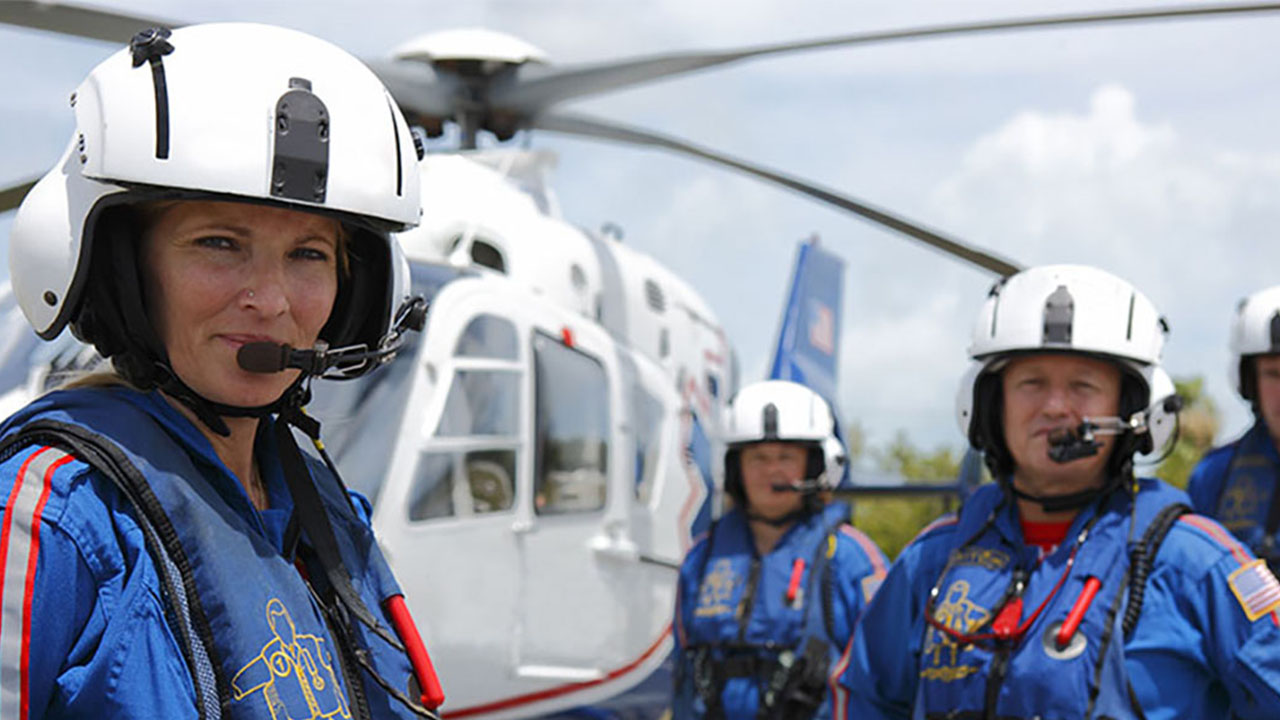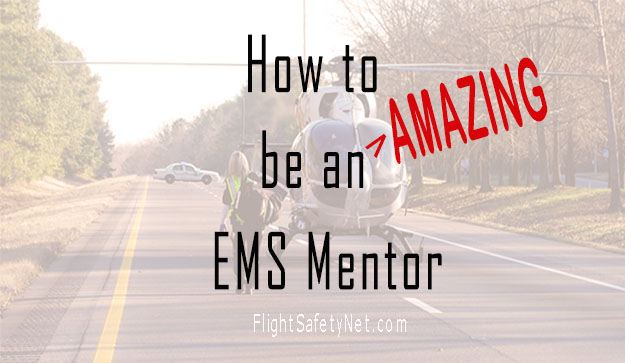—And why you probably don’t have a choice.
Let’s be honest.
We all want an awesome mentor.
Someone to take us by the hand and show us a better way.
Someone to save us time, money and frustration. How awesome would that be, right?
Here’s the thing.
If you’re good at what you do, sooner or later the day will come when someone – an employee, co-worker, student or acquaintance – comes to you for advice.
Someone who is looking for a mentor, and to them, you fit the bill perfectly.
Is Mentoring Worth It
Is mentoring worth the effort?
In a word, yes.
But, it’s a very personal decision. You must decide how much value mentoring has to you.
After watching hundreds of professional flight crews mentor wannabe flight crews, I can tell you with certainty it’s a pretty great experience for all involved. A lot of times the mentor benefits as much or more than the mentee.
Why?
Because the feeling you get when someone tells you they’re “living their dream” thanks to your help, is pretty incredible. It’s right up there with someone thanking you for saving their life.
If you’re EMS, you know exactly what I’m talking about.
So how do you do it? And how do you get good at it?
How do you become the amazing mentor you would want to have for yourself?
Here are 10 tips to get you started:
10 Tips for Becoming An Amazing EMS Mentor
1. Be a giver
It kind of goes without saying, but I’ll say it anyways.
Being a mentor is about being a giver. And it’s also about giving for the right reasons.
Know your priorities up front. Are you mentoring for the right reasons? If your only motivation is yourself, stop. Mentoring isn’t about you.
Don’t trap someone and force your personal story upon them.
Mentoring is about helping others for the right reasons. Give more than you get.
2. Give Advice Beyond Work
Think how shallow your life would be if all you did was work. If your biggest source of happiness was work.
Think how much you would be missing. I know from personal experience it’s not fulfilling. You can read 10 Warning Signs of Aviation Induced Divorce Syndrome (AIDS) here.
The point is to give advice beyond work. Get to know the whole person. Find out their hopes, dreams, plans and schemes beyond work.
If you help a person advance their EMS or Air medical career and they’re still unhappy, how much did your really help them?
3. Set Expectations Up Front
Set expectations together in the very beginning.
Until you know exactly what a person wants to achieve, and how they hope to achieve it, you really can’t help them.
It’s important to sit down and go over expectations, especially if you’re just meeting each other or have spent little time together.
This scenario happens often with EMS. For example, a student aspires to become a paramedic and wants your experienced paramedic advice on how to do it.
You might be wondering if they want to work for your company, or if they’re just looking for advice on how to become a paramedic anywhere. It’s the type of thing you want to ask up front.
4. Approach Each Mentorship Differently
People are different. As a mentor, you need to adapt your style to what works best for the person seeking your advice. Again, remember that it’s not about you.
It’s about getting results for the person you’re helping.
Remind yourself what worked best for you, or the last person you mentored, may or may not work today.
We see examples of this in EMS Flight Safety Network all the time. What got one person hired as a flight medic a year ago, may or may not help a person who aspires to fly today. They’re two different people and a lot can change in a year.
5. Mentor with Passion
The greatest of mentors inspire their mentees and become living examples to emulate.
How do they do it?
They do it by exuding a genuine passion for their work. Get excited about EMS and what you do. Passion is contagious.
Remind yourself of why you chose an EMS career. Remind yourself it was a good decision then, and it’s still a great career now.
Share a story that ignites your passion. Your commitment to EMS and why you picked EMS as a career will shine through.
6. Tell the Truth About Mistakes You’ve Made
Be open to sharing your mistakes and failures.
It’s hard to do, but it’s important for a lot of reasons.
Your mentoree puts you on a pedestal. Depending on their experience, they may or may not realize you’re as human and mistake prone as the rest of us.
Sharing your failures humanizes you and builds trust. We all know how humbling EMS can be. Help your mentoree by showing them how you’ve been humbled in the past.
7. Celebrate Their Successes
It’s easy to fall into an EMS negativity trap when mentoring. Great mentors avoid this trap.
It’s likely someone wants your advice or help with a problem they’re experiencing.
Great mentors quickly get past the problems and move on to the actions required to reach a solution.
When you take the time to highlight and even celebrate your mentee’s successes and achievements, you’re not just balancing out the mood of potentially negative conversations — you’re also building your mentee’s confidence, reinforcing good behavior, and keeping them focused and motivated.
8. Don’t Assume Anything
It’s easy to think everyone followed your path into an EMS or air medical career. But it’s not realistic.
Even when you have similar backgrounds e.g. same school, same town, same fire company, etc, it’s still important to guard against making assumptions.
The best way to learn your mentorees background is to ask. Let them tell their story. Listen intently to the details. It will make you a stand-out mentor.
9. Seek Out Classes or Projects
Use your experience to find classes and projects you know would help your mentoree.
Don’t waste anyone’s time with busy work. Remember, your mentoree isn’t stupid. They picked you as a mentor, right?
That’s why you have to find and recommend courses that they’ll find interesting, learn from and will actually help them.
It’s not difficult to do, but it takes more effort than recommending a computerized training system (CTS) with the same modules and questions they’ll be answering for years to come.
10. Lead by Example
We’ve all heard the cliche “Do as I say, not as I do.”
Well, there’s no room for it when mentoring. You have to actually “walk the walk.” This is important, especially in EMS.
Why?
Because EMS is full of mediocre managers and damn few leaders. It hurts me to write it, but it’s true. If you’ve ever had the displeasure of working for someone who isn’t qualified to do what you do, and has never done what you’re doing, you know exactly what I’m talking about.
The silver lining is these folks never get asked to mentor. Nobody wants to follow in the footsteps of the incompetent manager everybody ridicules. And that’s the point! Don’t be that guy or gal.
Lead by doing. Lead by example.
What To Do Now
If you’re good at what you do, getting asked to mentor is really just a matter of time. It’s a question of when you’re asked, not if you’ll be asked.
That’s why there’s really no choice about it.
My best advice is to start getting ready now. It’s as easy as asking yourself what you really wish someone had told you before you started your career.
Get that answer ready in your head, and you’re off to a good start to becoming an amazing mentor.
What’s your best advice? Share it or something one of your mentors taught you — in the comments section below.
[divider style=”4″]
Want EMS and air medical tips sent straight to your inbox? Get The Net newsletter. Sign up here (it’s free):
[shortcode-variables slug=”optin-form”]




1 Response to "How To Be An Amazing EMS Mentor"
I’d love to be a mentor and be able to help those who are invoked in tragedies such as hurricanes, shootings, etc.
Thanks